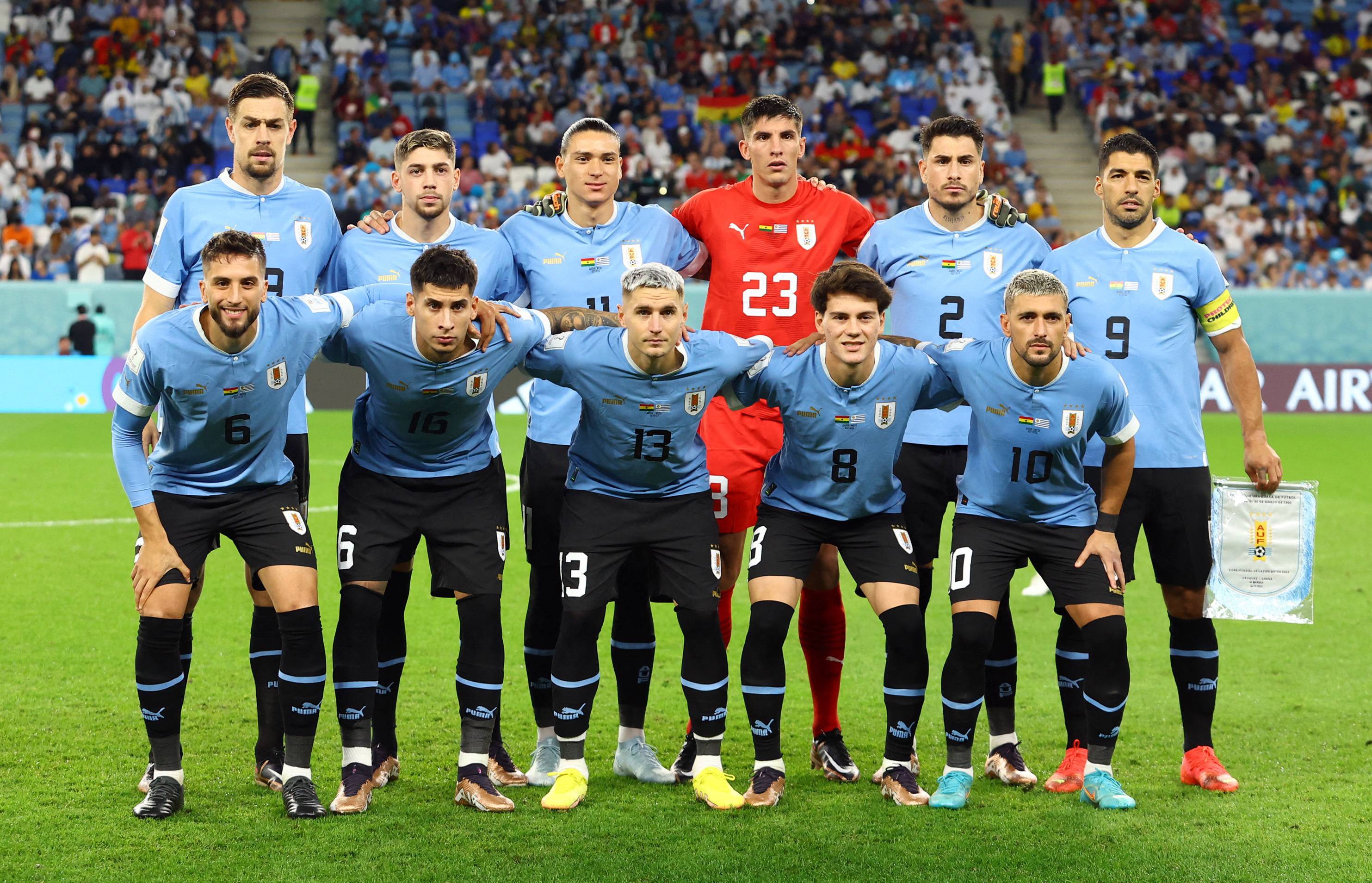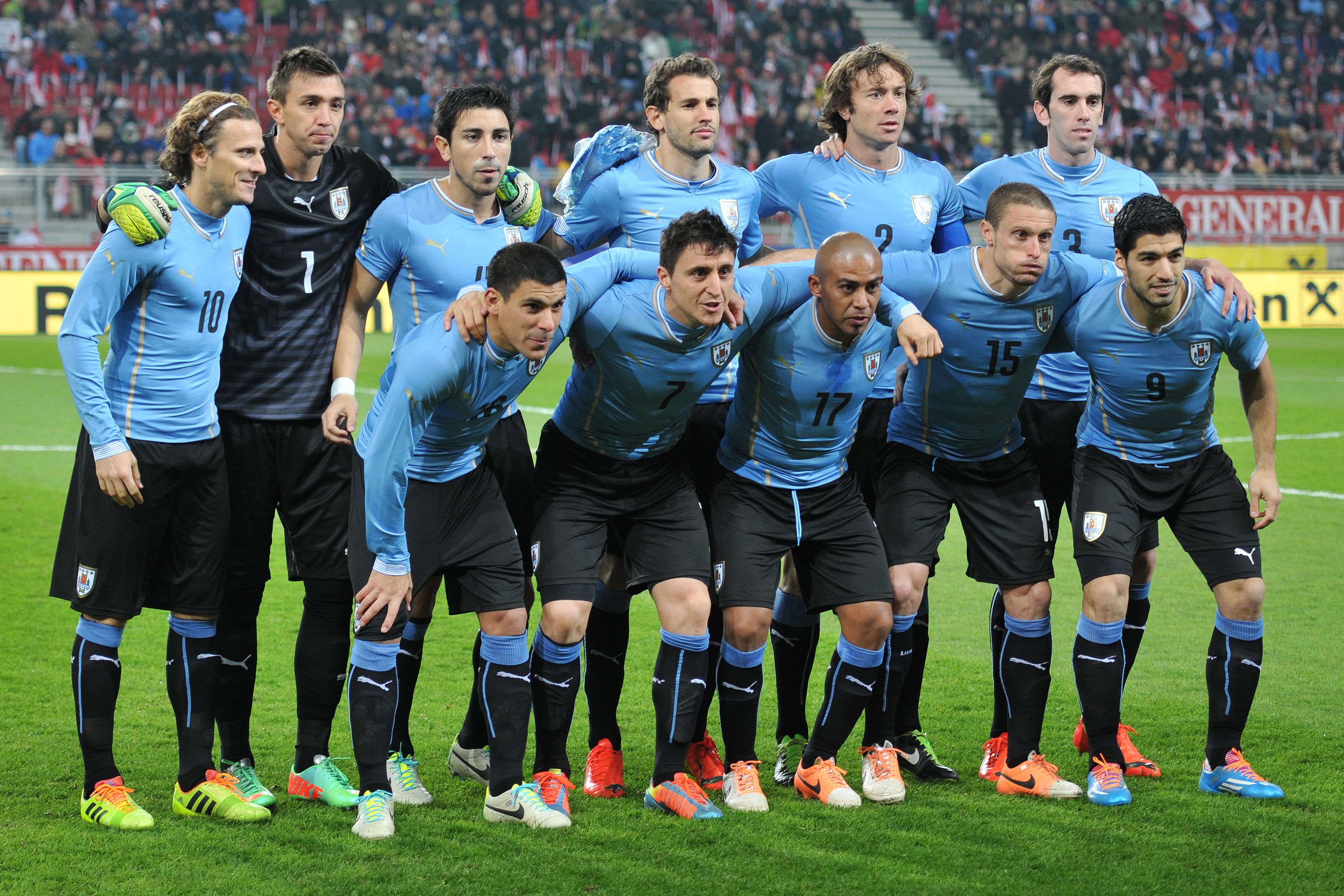Uruguayan Football History and Legacy: Uruguay Soccer
Uruguay soccer – Uruguay, a small nation with a profound passion for football, boasts a rich and storied history in the sport. From humble beginnings to global triumphs, Uruguayan football has left an indelible mark on the country’s culture and society.
Uruguay soccer, with its captivating skills and electrifying matches, has left an indelible mark on the world stage. Yet, amidst the roar of the crowd, a different kind of battle rages on the court – the fierce debate over pho vs con wnba.
Whether it’s the finesse of the Pho or the power of the Con, this discussion sparks a heated exchange among basketball enthusiasts. But as the final whistle blows, the focus returns to the artistry of Uruguay soccer, where every move is a symphony of passion and skill.
Origins and Evolution
The origins of Uruguayan football can be traced back to the late 19th century, with British immigrants introducing the game to the country. Football clubs began to emerge, and the first official match was played in 1891. The sport quickly gained popularity, capturing the hearts of Uruguayans from all walks of life.
As the fervor of Uruguay soccer grips the nation, the fever game tonight promises an electrifying spectacle. Fever game tonight , the stakes are high, and the passion palpable. With the whistle’s call, Uruguay’s skilled players will unleash their artistry on the field, showcasing the indomitable spirit that has made them a force to reckon with in the world of soccer.
Key Historical Moments
- 1924 Olympic Games: Uruguay’s first major triumph came at the 1924 Olympic Games in Paris, where they defeated Switzerland 3-0 in the final to claim their first gold medal.
- 1930 FIFA World Cup: Uruguay hosted and won the inaugural FIFA World Cup in 1930, defeating Argentina 4-2 in the final. This victory solidified Uruguay’s status as a football powerhouse.
- 1950 FIFA World Cup: In one of the most dramatic upsets in football history, Uruguay defeated Brazil 2-1 in the final at the Maracana Stadium in Rio de Janeiro, known as the “Maracanazo.”
Impact on Uruguayan Culture and Society
Uruguayan football has played a significant role in shaping the country’s culture and society. It has fostered a sense of national pride and unity, bringing people together from all walks of life. Football is deeply embedded in Uruguayan culture, with streets and plazas often filled with children and adults alike playing the game.
Current State of Uruguayan Football

Uruguay’s footballing landscape has undergone a period of transition and adaptation in recent years. The country’s traditional strengths, such as its fierce competitive spirit and strong defense, remain evident, but there have also been challenges to overcome.
Structure and Organization, Uruguay soccer
Uruguayan football is governed by the Uruguayan Football Association (AUF), which oversees all aspects of the sport in the country. The AUF organizes the Uruguayan Primera División, the top tier of professional football in Uruguay, as well as the national team and various youth competitions.
National Team Performance
The Uruguayan national team, known as La Celeste, has experienced mixed fortunes in recent years. While they remain a formidable force in South American football, they have not been able to replicate their past successes on the global stage. Uruguay finished 16th in the 2018 FIFA World Cup and failed to qualify for the 2022 tournament.
Challenges and Opportunities
Uruguayan football faces several challenges, including the emigration of talented players to European clubs, the need for improved youth development programs, and the financial constraints that limit investment in infrastructure and coaching. However, there are also opportunities for growth, such as the increasing popularity of football among women and the potential for collaboration with other countries in the region.
Uruguayan Football Players and Teams

Uruguay, a small nation with a profound footballing legacy, has produced a remarkable array of talented players and formidable teams that have left an enduring mark on the global football landscape. Their contributions have not only shaped the sport within Uruguay but have also influenced its development worldwide.
The Uruguayan national team, nicknamed “La Celeste” (The Sky Blues), has achieved remarkable success on the international stage. They have won the FIFA World Cup twice, in 1930 and 1950, and have also claimed 15 Copa América titles, making them one of the most successful national teams in history.
Notable Uruguayan Football Players
Uruguay has produced a plethora of exceptional footballers who have graced the fields of some of the world’s most prestigious clubs. Here is a table showcasing some of the most notable Uruguayan players and their achievements:
| Player | Achievements |
|---|---|
| José Nasazzi | – Captained Uruguay to their first World Cup victory in 1930 – Played for Club Nacional de Football and Bologna FC – Known for his exceptional defensive skills and leadership |
| Juan Schiaffino | – Played a key role in Uruguay’s 1950 World Cup triumph – Known for his technical ability, creativity, and dribbling skills – Represented clubs such as Peñarol, AC Milan, and Roma |
| Diego Forlán | – Won the Golden Ball award at the 2010 FIFA World Cup – Scored the winning goal in the 2011 Copa América final – Played for clubs such as Manchester United, Atlético Madrid, and Inter Milan |
| Luis Suárez | – One of the most prolific goalscorers in the history of the sport – Won the Golden Boot award at the 2014 FIFA World Cup – Currently plays for Nacional and has represented clubs such as Liverpool, Barcelona, and Atlético Madrid |
| Edinson Cavani | – Uruguay’s all-time leading goalscorer – Known for his physicality, aerial ability, and goal-scoring prowess – Currently plays for Valencia and has represented clubs such as Napoli, Paris Saint-Germain, and Manchester United |
Major Uruguayan Football Clubs
Uruguay is home to several renowned football clubs that have played a significant role in the development of the sport both domestically and internationally. Here is a list of some of the major Uruguayan football clubs and their accomplishments:
- Club Nacional de Football: Founded in 1899, Nacional is one of the most successful clubs in Uruguayan history, with 49 league titles and 3 Copa Libertadores titles.
- Peñarol: Founded in 1891, Peñarol is another major force in Uruguayan football, with 51 league titles and 5 Copa Libertadores titles.
- Defensor Sporting: Founded in 1913, Defensor Sporting has won 4 league titles and 1 Copa Libertadores title.
- Danubio: Founded in 1932, Danubio has won 4 league titles and has also made several appearances in international competitions.
- River Plate: Founded in 1932, River Plate has won 1 league title and has a strong youth development program.
Impact of Uruguayan Players and Teams on the Global Football Landscape
The contributions of Uruguayan players and teams to the global football landscape have been profound. Uruguayan players have played for some of the world’s most prestigious clubs and have consistently performed at the highest level. They have showcased their technical ability, tactical awareness, and unwavering determination, inspiring players and fans worldwide.
Uruguayan teams have also played a significant role in shaping the sport. Their success on the international stage has demonstrated the strength and quality of Uruguayan football. Their performances have inspired other nations to adopt similar playing styles and tactics, contributing to the overall development of the sport.
In conclusion, Uruguayan football players and teams have played a pivotal role in the global football landscape. Their achievements and contributions have left an enduring legacy on the sport, inspiring players, teams, and fans around the world.